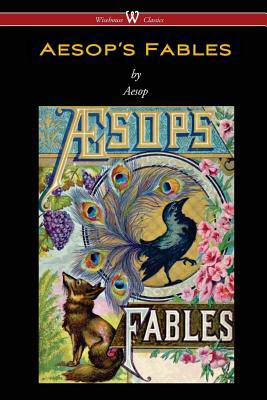
- Retrait gratuit dans votre magasin Club
- 7.000.000 titres dans notre catalogue
- Payer en toute sécurité
- Toujours un magasin près de chez vous
- Retrait gratuit dans votre magasin Club
- 7.000.000 titres dans notre catalogue
- Payer en toute sécurité
- Toujours un magasin près de chez vous
Description
AESOP'S FABLES or the AESOPICA is a collection of fables credited to Aesop, a slave and storyteller believed to have lived in ancient Greece between 620 and 560 BCE. Of diverse origins, the stories associated with Aesop's name have descended to modern times through a number of sources. They continue to be reinterpreted in different verbal registers and in popular as well as artistic media.
The fables were in the first instance only narrated by Aesop, and for a long time were handed down by the uncertain channel of oral tradition. Socrates is mentioned by Plato as having employed his time while in prison, awaiting the return of the sacred ship from Delphos which was to be the signal of his death, in turning some of these fables into verse, but he thus versified only such as he remembered. Demetrius Phalereus, a philosopher at Athens about 300 B.C., is said to have made the first collection of these fables. Phaedrus, a slave by birth or by subsequent misfortunes, and admitted by Augustus to the honors of a freedman, imitated many of these fables in Latin iambics about the commencement of the Christian era. Aphthonius, a rhetorician of Antioch, A.D. 315, wrote a treatise on, and converted into Latin prose, some of these fables. This translation is the more worthy of notice, as it illustrates a custom of common use, both in these and in later times. The rhetoricians and philosophers were accustomed to give the Fables of Aesop as an exercise to their scholars, not only inviting them to discuss the moral of the tale, but also to practice and to perfect themselves thereby in style and rules of grammar, by making for themselves new and various versions of the fables. Ausonius, the friend of the Emperor Valentinian, and the latest poet of eminence in the Western Empire, has handed down some of these fables in verse, which Julianus Titianus, a contemporary writer of no great name, translated into prose. Avienus, also a contemporary of Ausonius, put some of these fables into Latin elegiacs, which are given by Nevelet (in a book we shall refer to hereafter), and are occasionally incorporated with the editions of Phaedrus. Seven centuries elapsed before the next notice is found of the Fables of Aesop...
The fables were in the first instance only narrated by Aesop, and for a long time were handed down by the uncertain channel of oral tradition. Socrates is mentioned by Plato as having employed his time while in prison, awaiting the return of the sacred ship from Delphos which was to be the signal of his death, in turning some of these fables into verse, but he thus versified only such as he remembered. Demetrius Phalereus, a philosopher at Athens about 300 B.C., is said to have made the first collection of these fables. Phaedrus, a slave by birth or by subsequent misfortunes, and admitted by Augustus to the honors of a freedman, imitated many of these fables in Latin iambics about the commencement of the Christian era. Aphthonius, a rhetorician of Antioch, A.D. 315, wrote a treatise on, and converted into Latin prose, some of these fables. This translation is the more worthy of notice, as it illustrates a custom of common use, both in these and in later times. The rhetoricians and philosophers were accustomed to give the Fables of Aesop as an exercise to their scholars, not only inviting them to discuss the moral of the tale, but also to practice and to perfect themselves thereby in style and rules of grammar, by making for themselves new and various versions of the fables. Ausonius, the friend of the Emperor Valentinian, and the latest poet of eminence in the Western Empire, has handed down some of these fables in verse, which Julianus Titianus, a contemporary writer of no great name, translated into prose. Avienus, also a contemporary of Ausonius, put some of these fables into Latin elegiacs, which are given by Nevelet (in a book we shall refer to hereafter), and are occasionally incorporated with the editions of Phaedrus. Seven centuries elapsed before the next notice is found of the Fables of Aesop...
Spécifications
Parties prenantes
- Auteur(s) :
- Editeur:
Contenu
- Nombre de pages :
- 104
- Langue:
- Anglais
Caractéristiques
- EAN:
- 9789176370476
- Date de parution :
- 27-10-15
- Format:
- Livre broché
- Format numérique:
- Trade paperback (VS)
- Dimensions :
- 152 mm x 229 mm
- Poids :
- 163 g







